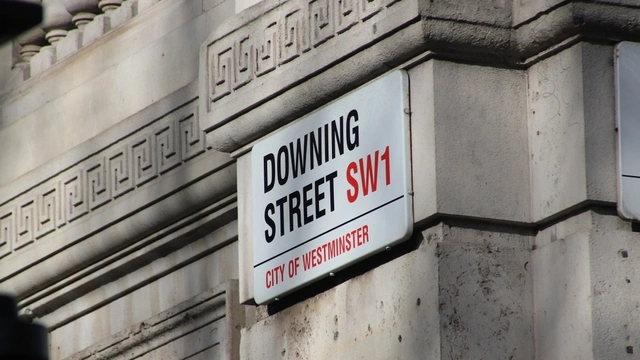This year’s autumn budget, Labour’s first in 14 years and delivered by the first ever female Chancellor, Rachel Reeves, brings some big news. From wages to family support, the government has introduced changes that could impact day-to-day life.
So, here’s a breakdown of the main takeaways — and what they mean for you.
Minimum wage increases
Starting next April, the national living wage will see a rise, putting a bit more in your pocket. Here’s the breakdown:
- Aged 21 and over: Your hourly rate jumps from £11.44 to £12.21 - a nice 6.7% boost.
- Aged 18 to 20: Minimum wage is up from £8.60 to £10 per hour.
- Apprentices: Wages go from £6.40 to £7.55 per hour.
This rise is great news for workers in a range of sectors, especially in regions where living costs are rising. Hospitality, retail, and healthcare industries are expected to benefit most from these wage improvements.
Promoting employment
A £240 million package is on the way to help people across the UK find jobs. This funding will flow into training programs for sectors in high demand and provide support for young people, those unemployed long-term, and people returning to work. It’s all part of tackling skills shortages and helping jobseekers find the right opportunities.
Tax changes
Here’s a sigh of relief: there’ll be no hikes in national insurance, VAT, or income tax for workers. Self-employed and freelance workers, you’re not forgotten either—there are new adjustments in the tax codes to simplify reporting and payments. If you’re in this category, definitely take a look at these changes—they could make life a bit easier.
Changes to benefits
People who receive Universal Credit will see their monthly payments increase by 1.7%, in line with inflation. If they’re using Universal Credit to repay debts, the amount taken from their monthly payment to pay these back will be reduced from 25% to 15%.
These changes should help around 1.2 million households. Plus, expect updates to housing benefits and disability allowances to help ease the financial strain for those who need it most. New guidance on community support programs and eligibility is also on the way.
Support for carers
Carers will also see benefits from the budget. The carer’s allowance currently sits at £81.90 per week, but the government’s upping the income threshold, meaning carers can earn over £10,000 annually (about 16 hours a week at the living wage) without losing this support. Plus, more funding for carers’ mental health is expected, so keep an eye out for further updates on this front.
Household Support Fund extension
The Household Support Fund (HSF), which has been a lifeline for many low-income households since 2021, will get a £1 billion boost. This fund will now cover even more essentials, such as school uniforms and public transport, for eligible households. If you’re in need, this extension could make a real difference in covering everyday expenses.
Pensions: a promising update
Thanks to the triple lock, pensioners can breathe a bit easier with a 4.1% bump in the state pension next year—roughly £470 a year for over 12 million people. Plus, there are new incentives to encourage retirement savings, including tax relief options and alternative annuities. So, there’s more support for building a solid nest egg.
Fuel prices and drivers
If you’re worried about rising fuel costs, there’s a bit of good news: fuel duty will remain frozen next year, maintaining the current 5p cut. And in a continued effort to promote sustainable travel, there’s also more investment heading to electric vehicle infrastructure, especially in underserved areas.
Bus fare cap increase
If you rely on public transport, here’s a heads-up:
- The single bus fare cap will rise from £2 to £3, effective until December 2025.
- This cap applies to most bus services in England, though London and Greater Manchester have their own limits (£1.75 in London and £2 in Greater Manchester).
Air passenger duty update
For those planning a holiday, concerns about rising travel costs have eased. Economy-class short-haul flights will only see a slight increase of up to £2.
Enjoy a ‘Penny Off Pints’
You’ll now save a penny on draft pints, thanks to the Chancellor’s new cut on draft alcohol duty. A small change, but a welcome one—cheers to that!
Breakfast clubs: more support for kids
Investment in breakfast clubs will triple, providing more support for children across the UK. However, hopes for extending free school meals to all primary school children were left unanswered, so this remains an area to watch.
Special needs education funding
An extra £1 billion will go toward special educational needs and disabilities, focusing on priority areas like autism and mental health support in schools. This funding is set to start rolling out next year, aiming to improve access and support for children who need it most.
Watch this space
Time will tell how the latest budget will affect our day-to-day. While plenty of the changes were welcomed by many, there are still areas of uncertainty.
Nikolaos Charalampous, Director of credit score app CredAbility says:
“In all, the budget has many positives that will help households and provide a real boost for many of our members. Rises in the National Minimum Wage will mean an uplift of £1,505.54 for someone working full-time. But this poses new challenges with more people paying tax for the first time because of the freeze on tax bands.”
For now, let’s watch this space to see the impact of these latest changes. And, as always, you can get the latest updates and guidance on how to access these new benefits on our blog.
![Email icon]()
Become a money maestro!
Sign up for tips on how to improve your credit score, offers and deals to help you save money, exclusive competitions and exciting products!









